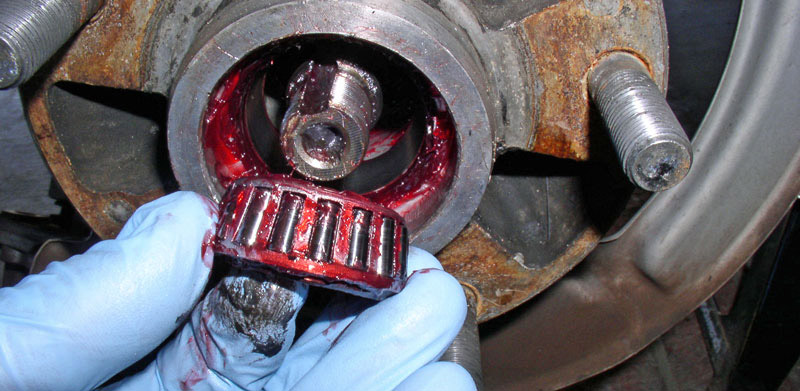
Imagine for a second this scenario: you’re driving down the 110 at 65 miles per hour as safely when you can when suddenly your wheel falls off. Your car is sent swerving across three lanes, sideswiping two cars and smashing into the center divider. Your car is totaled, two other cars are damaged, and their occupants may be injured. Your insurance rates will skyrocket to astronomical levels, and you will have to live with the guilt of causing a serious accident. Although extremely unlikely, this is a very real possibility if you neglect a worn wheel bearing. Guess you shouldn’t have ignored that funny noise for so long!
To understand why the potential for disaster is so serious, first we must know what a wheel bearing is. A wheel bearing is a set of steel balls held together by a metal ring called a race. They help your vehicle’s wheels spin fast with as little friction as possible. On cars, the wheel bearing rides on a metal axle shaft and fits tightly inside the hub, which is the part that holds the lug bolts used to bolt each wheel onto your car.
Most wheel bearings are made of hardened steel, and are very durable. Their two worst enemies are heat and water. These can destroy a wheel bearing, especially once the seal is broken. Seals protect the bearings from water and debris and seal in the high-temperature grease that lubricates the bearing, but a wheel bearing will start disintegrating quickly once the seal is broken and begin to make noise.
When the seal on your wheel bearing is damaged, it will start to make a noise. This noise will start out very faint and become louder over time. It may sound like your tires are louder than normal, like when you drive over a rough surface. If you notice that it is louder when you are turning, it may mean that the wheel bearing on only one side is damaged.
Wheel bearings do not fail immediately, and usually once you notice a sound it is still safe to drive your vehicle to the shop to have it replaced. However, if neglected for long enough, a wheel bearing could fail completely and lock up the wheel it serves, leading to loss of control, or even your wheel falling off completely. For this reason, we recommend that you minimize the risk to yourself and your fellow motorists and take your vehicle in for a diagnosis today as soon as you think that there might be a problem.
If you suspect that your wheel bearings are beginning to fail, come in to your Certified Auto Repair Specialist of Pasadena today, or give us a call at (626) 793-2220

